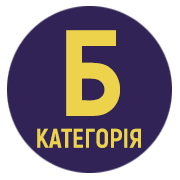PEDAGOGICAL CONDITIONS AS THE MAIN COMPONENT OF THE FORMATION OF INSTRUMENTAL AND EXECUTIVE TRAINING OF TEACHERS OF HIGHER EDUCATION INSTITUTIONS OF THE ARTISTIC DIRECTION
Abstract
Іn our study, the pedagogical conditions for the effective formation of instrumental and performance training of music teachers were considered. Appropriate pedagogical conditions are considered as a set of specific means and special circumstances that contribute to the effective formation of instrumental and performing training of music teachers. Qualitative formation of instrumental and performance training of musical art teachers is possible by using the following pedagogical conditions: development of own performance skills during active independent work on performance means and artistic image of the performed musical work; formation of future teachers of musical art experience of performance during the educational process and concert activity in institutions of higher education; intensification of innovative and traditional approaches to instrumental and performing activities and practical improvement of interpretive means of performing and creative expressiveness among music teachers; ensuring effective educational interaction taking into account the characteristics of each student, future music teacher. Pedagogical conditions, which were selected for the purpose of effective formation of instrumental and performing training of music teachers, should be in a constant relationship and assume a complex nature. A music teacher performs the role of not only a teacher, but also a concertmaster, illustrator and performer. At the same time, in accordance with the program requirements, he needs to perform a large number of instrumental pieces that correspond to their systematic complexity and a certain logic of construction, according to which each subsequent piece of music must be based on previously learned material. Under such conditions, it is necessary to constantly encourage future teachers of musical art to become more familiar with modern and classical musical works, to expand their range, which in the end will make it possible to realize the dialogic nature of educational interaction between students and teachers with the appropriate condition of taking into account the individual abilities of each future teacher.
References
Барсукова Н.С. (2015). Педагогічні умови формування виконавської майстерності майбутнього вчителя музичного мистецтва: автореф. … канд. пед. наук: 13.00.04. Мелітополь. 20.
Білецька М., Підварко Т. (2020). Формування готовності майбутнього вчителя музичного мистецтва до концертно-виконавської діяльності. Молодь і ринок, 1 (180), 46–50.
Гаврілова Л., Псарьова Л. (2016). Інтерпретація музичного твору: теоретичні аспекти. Професіоналізм педагога: теоретичні й методичні аспекти, 3, 97–106. http://nbuv.gov.ua/UJRN/prptma_2016_3_12.
Гаркуша Л.І. (2016). Самостійна робота майбутнього вчителя музичного мистецтва у процесі концертно-виконавської та педагогічної практики. Музичне мистецтво в освітологічному дискурсі, 1, 89–93.
Гур’янова Н.М., Зворська Н.А. (2011). Вдосконалення виконавської майстерності – найважливіший аспект формування музичного мислення майбутнього вчителя музики. Музично-театральне мистецтво, 2, 176–178.
Гусейнова Л.В. (2005). Формування готовності майбутніх учителів музики до інструментально-виконавської діяльності: автореф. … канд. пед. наук: 13.00.02. Київ. 18. https://otherreferats.allbest.ru/pedagogics/00444444_0.htm\.
Заходякін О. (2014). Інструментально-виконавська діяльність як невід’ємна частина професійної підготовки педагога-музиканта. Нова педагогічна думка, 1, 149–151. http://nbuv.gov.ua/UJRN/Npd_2014_1_48.
Мозгальова Н. (2010). Змістове наповнення поняття «інструментально-виконавська підготовка вчителя музики». Науковий часопис НПУ ім. М.П. Драгоманова, 9, 39–43.
Падалка Г.М. (2010). Педагогіка мистецтва (теорія і методика викладання мистецьких дисциплін). Київ: Освіта України, 274.
Щолокова О.П., Мозгальова Н.Г., Барановська І.Г. (2019). Інтерпретація музичних творів – методичний аспект. Науковий вісник Південноукраїнського національного педагогічного університету ім. К.Д. Ушинського, 3, 151–158.
PDF Downloads: 52





